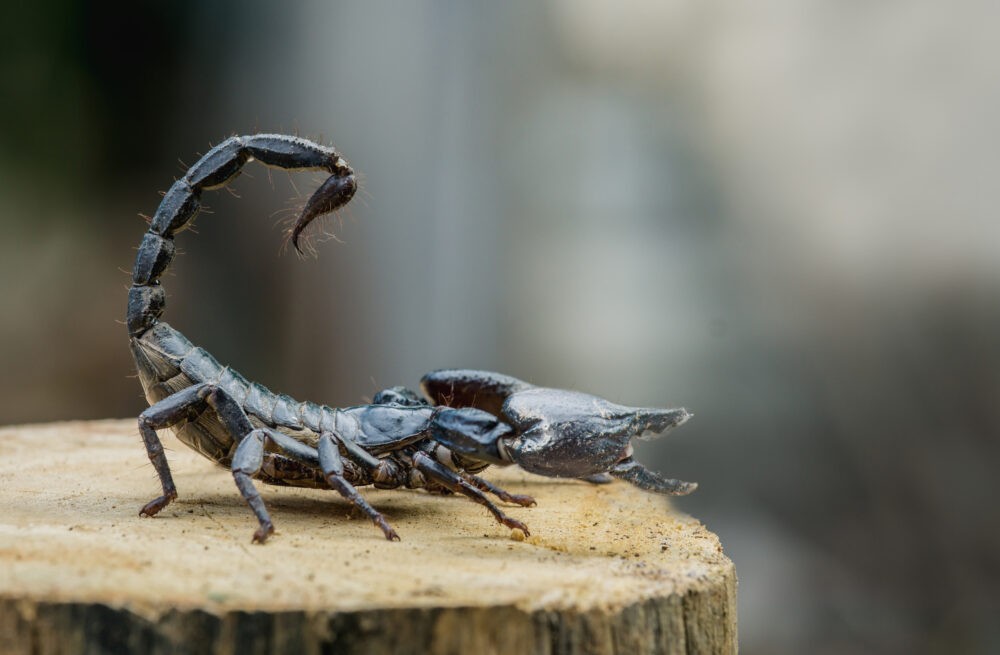Key Characteristics:
- Arachnid Predators: Scorpions are arachnids known for their distinctive pincers and a venomous tail, used for hunting prey.
- Nocturnal Behavior: Most scorpion species are nocturnal, seeking shelter during the day and hunting at night.
- Desert Adaptations: Many scorpions are adapted to arid environments, and they are commonly found in warm regions.
Potential Risks and Concerns:
- Venomous Stings: Some scorpion species possess venom that can cause painful stings, with potential allergic reactions in sensitive individuals.
- Hide in Dark Areas: Scorpions hide in dark, secluded places during the day, making them difficult to detect.
- Prey on Insects: While they are predators of insects, their presence can be unwanted, especially in and around homes.
Preventive Measures:
- Seal Entry Points: Inspect and seal gaps, cracks, and openings in windows, doors, and walls to prevent scorpion entry.
- Indoor Cleaning: Keep living spaces clean, reducing hiding spots such as clutter, clothes on the floor, and piles of debris.
- Outdoor Maintenance: Remove piles of rocks, wood, and other debris near the home, as these can provide hiding spots.
- Eliminate Moisture: Fix leaks and maintain proper drainage to reduce moisture levels, as scorpions are attracted to damp areas.
- Professional Assistance: If scorpion sightings or infestations are a concern, consider seeking professional pest control services.

